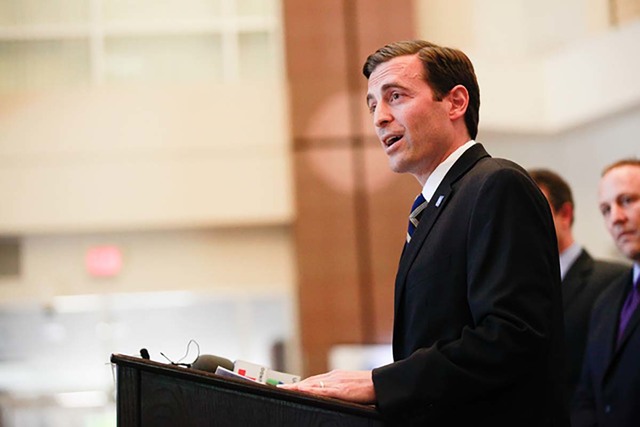Attorney General Laxalt Investigates Sham Websites Seeking Donations to Benefit Victims of Las Vegas Shooting

In light of the tragic event in Las Vegas last week, Nevada Attorney General Adam Paul Laxalt announced that his office has begun diligently investigating reports of sham charities purportedly collecting donations on behalf of the victims.
Last week, AG Laxalt announced that his office had been working with GoFundMe to pursue reports of fraudulent donation sites. Since receiving complaints from local consumers, AG Laxalt’s office successfully shut down a sham Facebook page last week with the assistance of employees at the social media company. His office is also currently pursuing other complaints against other false websites.
“There continue to be sham charities and websites seeking to profit from this horrific tragedy,” said Laxalt. “Complaints from local consumers continue to be the best source of information for our Bureau of Consumer Protection in investigating claims of misrepresentation.”
To best ensure your donation benefits the victims and families of the Las Vegas shooting, no matter the platform you choose to use, the Office of the Nevada Attorney General offers the following suggestions:
- Avoid any charity or fundraiser that asks for donations in cash or via wire transfer. Those that are unable to provide detailed information about their mission or organization and how donations will be used are suspect.
- Ask for detailed information about the charity, including name, address and telephone number. Then, conduct some online searches of the charity’s name in combination with the words “complaint” or “scam” to learn about its reputation. Using online resources offered by the Better Business Bureau can also provide assurances about the trustworthiness of any particular charity.
- Review the charity’s financial information or its Form 990. For information on the Form 990, visit the Nevada Secretary of State website. If a charity claims to use your donations to help the local community, contact the local agency and confirm whether the agency is familiar with the charity and receives financial support from it.
- Do not feel pressured into making an immediate donation by telephone or in person. The need for donations and the opportunity to give will be present for some time, and legitimate charities will not pressure you into making an immediate donation.
- Avoiding making checks payable to individuals. Also, avoid providing credit card, bank account or social security number information over the phone.
- When texting to donate, confirm the number with the source before you donate. The charge will show up on your mobile phone bill, but donations charges are not immediate.
- Be cautious of unsolicited charitable e-mails and attachments. An unsolicited e-mail is likely part of a scam, and any attachments may have a virus designed to steal financial or other personal information from your computer.
- Social media sites can also perpetuate scams. As with any other charity, take time to investigate the people behind any social media campaigns to ensure they represent a legitimate organization. Some sites, such as GoFundMe, take affirmative steps to ensure fundraising campaigns are vetted, donations are verified and complaints can be made to protect donors.
- Be wary of sound-alike names. Many sham charities intentionally use names that are easily confused with legitimate, respected charities.




Facebook
Twitter
Pinterest
RSS